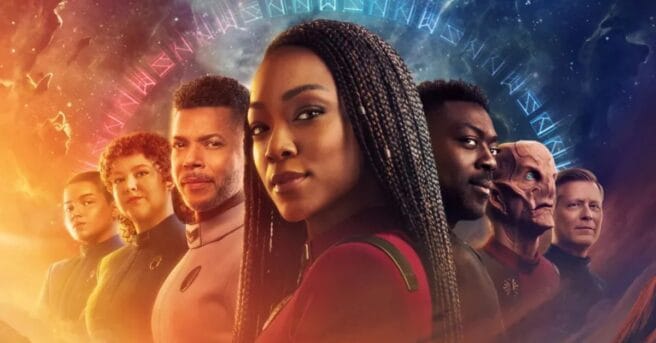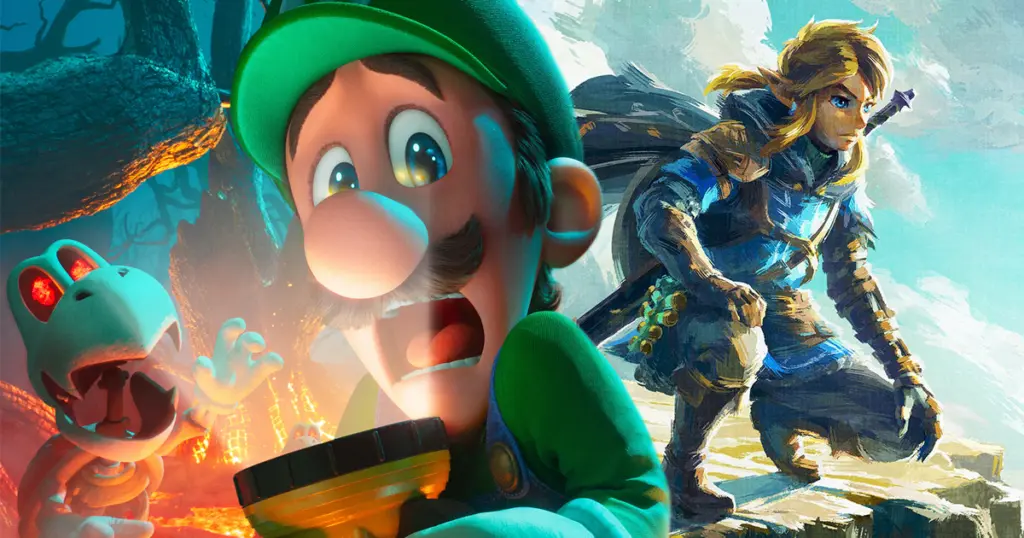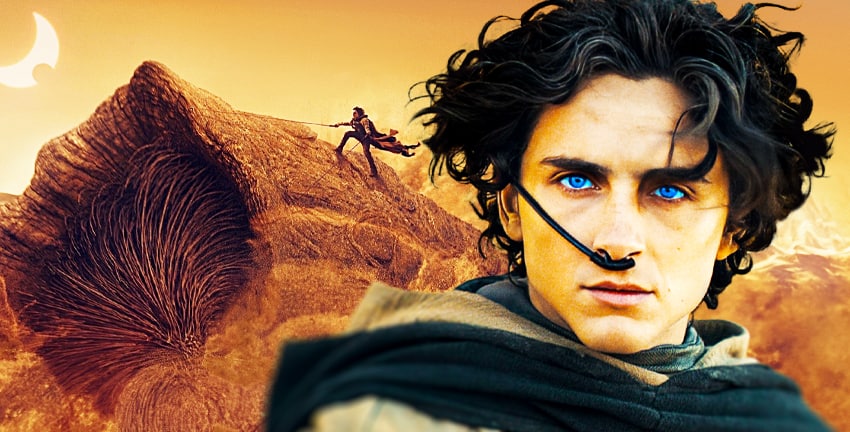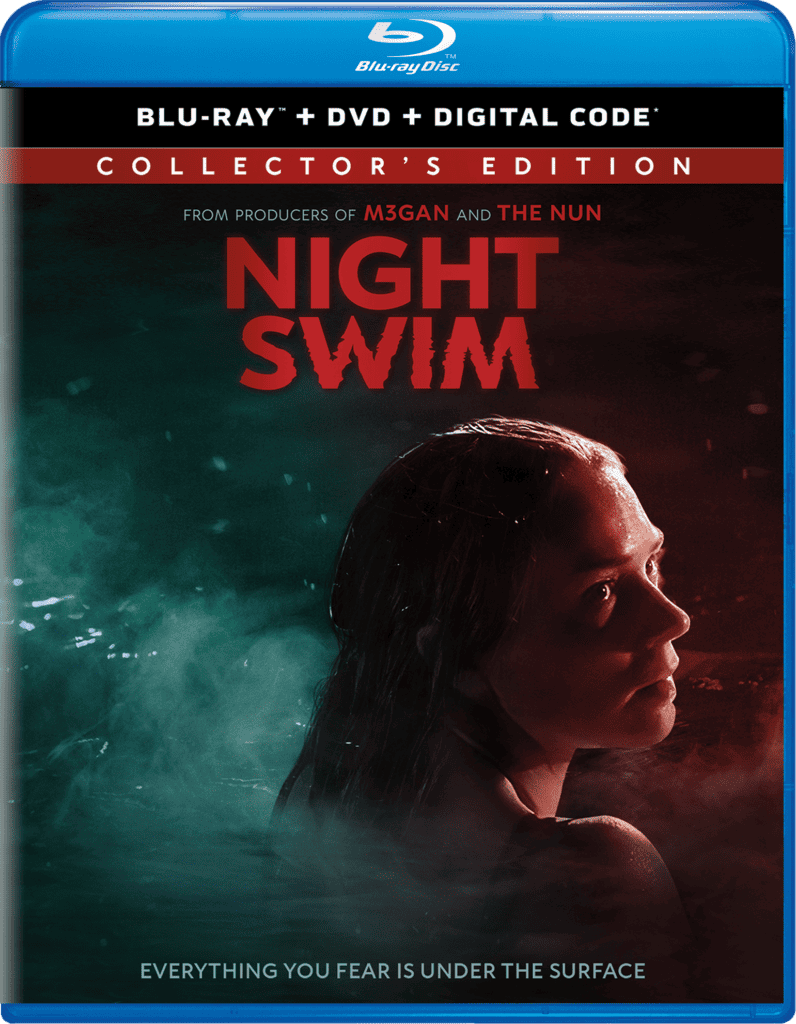

PLOT: The fifth and final season will find Captain Burnham and the crew of the U.S.S. Discovery uncovering a mystery that will send them on an epic adventure across the galaxy to find an ancient power whose very existence has been deliberately hidden for centuries. But there are others on the hunt as well…dangerous foes who are desperate to claim the prize for themselves and will stop at nothing to get it.
REVIEW: Seven years after it relaunched the Star Trek brand, Discovery is coming to an end. In 2017, the first season of the series premiered on what was then known as CBS All Access with the first serialized narrative in the franchise’s six-decade history. While the first season took some time to warm up, the second introduced Anson Mount’s Christopher Pike and the eventual cast of the Enterprise-centric spin-off Strange New Worlds. Season three thrust Michael Burnham and her crew to the 32nd century while the fourth found solid footing in an era never before explored by any Trek series. Now, the fifth and final season of Star Trek: Discovery launches with another adventure to rescue the galaxy but with a more standalone, episodic approach. It is yet another reinvention for a series that sometimes struggled to know what type of tale it wanted to be. But, after almost a decade with these characters, it is a fitting send-off for the crew that rebooted Star Trek for a new generation.
While the fourth season had a looser vibe with the crew of Discovery settling into their new era, the fifth season picks up not long after with a similar plot premise to prior seasons of the series. Captain Michael Burnham (Sonequa Martin-Green) receives a “red directive” order from Doctor Kovich (David Cronenberg) which places her crew on a mission of the highest priority. Tasked with finding an item that holds the fate of the galaxy in its grasp, Burnham and the crew run up against criminals Moll (Eve Harlow) and L’ak (Elias Toufexis). As they chase each other across the cosmos, Discovery and the thieving duo trade back and forth as they hunt for clues scattered across the reaches of space. All of these hints and puzzles eventually lead to an ancient technology that could destroy all sentient life and directly connects to a season six episode of Star Trek: The Next Generation. It is a fascinating callback, and a relatively obscure one, which will please long-time Trek fans while deepening the connection between this series and the vast interconnected mythos of the entire franchise.
With their mission underway, there are splits amongst those aboard Discovery as their tenure as a cohesive crew begins to come to an end. In the four episodes made available for this review (the season comprises ten total episodes), there is an air of finality to the proceedings. While not initially announced as the final season when it entered production, many characters make choices that will decide their future paths. Saru (Doug Jones) is contemplating leaving for a romantic relationship that began the prior season. Tilly (Mary Wiseman) has an offer to teach new cadets and Stamets (Anthony Rapp) faces the end of his spore drive technology and what it means for his legacy as a scientist. There are also new additions to the cast, notably Callum Keith Rennie as Captain Rayner. Rennie, a long-time character actor, is a gruff foil for Burnham who echoes the personality and demeanor of Jason Isaacs’ first-season character Gabriel Lorca. Rennie and Burnham become reluctant allies as they team up this season. Rennie’s presence as Rayner allows for some mild shake-up of the crew dynamic and instills the message again of how close this crew has gotten over their time working together.
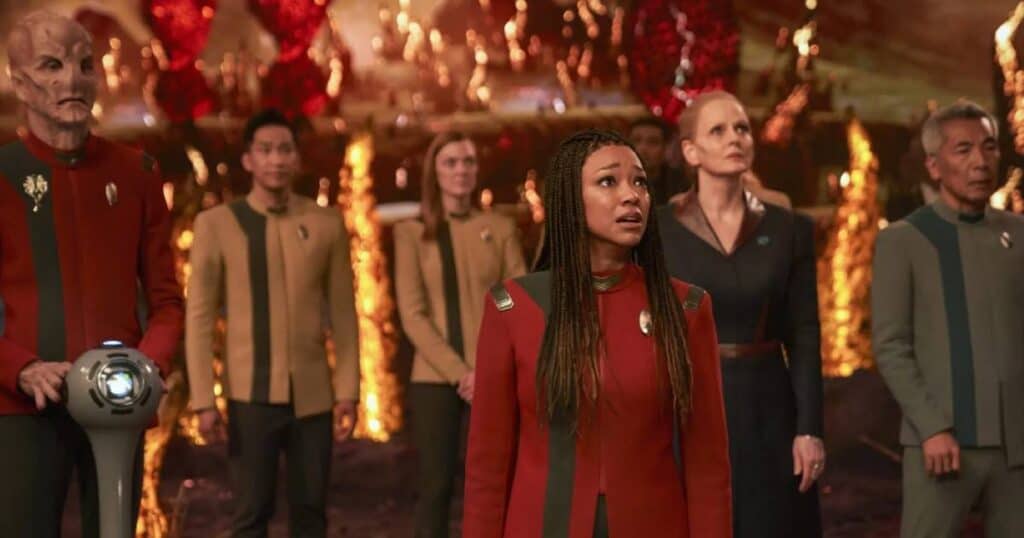
Star Trek: Discovery relied on a heavily serialized story over the first four seasons, something that all three seasons of Picard emulated. Strange New Worlds took on a more standalone, episodic story structure which allowed the episodes to be viewable as individual hours as well as connected by an over-arching narrative. The final season of Discovery still has a main narrative that flows through the episodes, but the plots are much more contained and allow for each chapter to work as a story with a beginning, middle, and end while also contributing towards the closure coming at the end. Since this season did not start as the final entry, the early episodes feel like business as usual. Moll and L’ak are far from the menacing villains of prior seasons which does take away from some of the stakes in the story. Same for the contained episodes which do not feel as immediate as earlier seasons of the series. As much as I have enjoyed Discovery as a change of pace from other Star Trek entries, it continues to feel a bit repetitive in the notes it keeps hitting.
The final season brings back showrunners Alex Kurtzman and Michelle Paradise. While Kurtzman previously said there were multiple seasons of potential stories for Discovery, this final run comes as the era of streaming seems to be contracting. That may be because Kurtzman has no credits on any episodes this season while Paradise wrote the premiere and co-wrote the series finale with Kyle Jarrow. Veteran directors Lee Rose and Jonathan Frakes return from prior seasons while Olatunde Osunsanmi opens and closes the season as helmer. The special effects continue to be of the highest caliber and the familiarity of Discovery’s ship tends to play against its freshness. This season feels like a continuation of what has come before it rather than a reinvention. That is not to say that it is remotely bad, but it feels underwhelming as far as final seasons go. As just the fifth season of Star Trek: Discovery, these first four episodes have the energy and momentum of a show that knows itself and is coasting along. Had there been an announcement that the subsequent season would be the last, I may feel differently about this year of Star Trek: Discovery. My opinion may also change once I see how this narrative will wrap up.
Star Trek: Discovery is a series that struggled to know what it wanted to be over five seasons. From Bryan Fuller to Alex Kurtzman, the 23rd century to the 32nd, this series has been a mix of themes, tones, ideas, and storytelling approaches that worked more often than it did not. With Sonequa Martin-Green as a fascinating lead character and an ensemble cast as interesting as any ship in all of Star Trek, Discovery has earned its place in Gene Roddenberry’s ever-expanding franchise. There is nothing wrong with this season but it could have been so much more had Paramount given the series the chance to develop a final season naturally rather than tacking on an ending to an already in-flight run of episodes. Star Trek: Discovery ends with a season that is fun to watch but lacks the immediacy that a final season deserves. I will reserve final judgment until I have seen the second half of the season but I can say the first half is a fun partial refresh of a series that still seems to be unsure of what it wants to be.
Star Trek: Discovery premieres its final season with two episodes on April 4th on Paramount+.
The post Star Trek: Discovery The Final Season TV Review appeared first on JoBlo.
